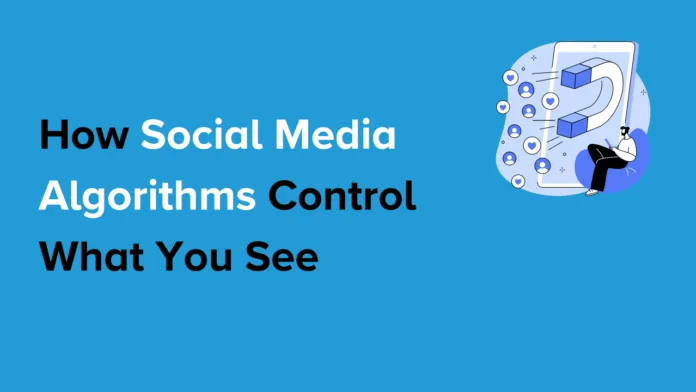The effects of social media algorithms stretch far beyond the convenience of content recommendations. They shape what we see, what we think, and often how we behave. While algorithms power everything from suggested posts to targeted ads, they also silently sculpt our digital experience, often in ways we don’t fully understand.
In a world where billions rely on platforms like Facebook, Instagram, TikTok, Twitter (X), and YouTube, these invisible code systems determine what content appears in front of our eyes every day. But are they just helping us — or are they slowly taking control?
Understanding Social Media Algorithms
Social media algorithms are designed to personalize your feed based on your past behavior, such as what you liked, shared, commented on, or even paused to view. On the surface, this seems harmless — even helpful. After all, who wouldn’t want content that aligns with their interests?
However, these algorithms do much more than just sort your preferences. They predict your behavior, influence your attention, and encourage specific actions that align with the platform’s goals — mainly, keeping you online as long as possible.
Engagement Over Accuracy
The most disturbing effects of social media algorithms stem from their bias toward engagement. Posts that are sensational, emotionally charged, or controversial often outperform calm, factual content — simply because they get more clicks, comments, and shares.
This leads to:
The spread of misinformation
Echo chambers where differing opinions are filtered out
Increased polarization and social division
Amplification of extreme content for higher engagement
These outcomes aren’t necessarily accidental — they’re built into how algorithms reward content.
The Psychological Toll
Social media isn’t just shaping your feed — it’s shaping your mind. The more you interact with a certain type of content, the more similar content the algorithm feeds you. Over time, this can reinforce beliefs, alter self-image, and affect mental health.
Some of the most commonly reported psychological effects include:
Increased anxiety and depression
Addictive scrolling behavior
Decreased self-esteem from comparison culture
FOMO (Fear of Missing Out)
Teens and young adults are especially vulnerable, as their identities and belief systems are still forming. What they see online can heavily influence how they view themselves and the world.
Behavior Manipulation: Are You Still in Control?
Algorithms are now so advanced they can not only predict your behavior — they can manipulate it. This includes influencing:
What you buy
What news you believe
Who you interact with
What political or social stance you take
For example, during political campaigns, users might be micro-targeted with posts or ads tailored specifically to manipulate their beliefs. These messages might never appear in someone else’s feed, creating isolated bubbles of customized information.
This invisible influence raises serious ethical questions: Are users truly making decisions for themselves, or are they being subtly guided by lines of code?
The Illusion of Choice
Most users think they’re in control of what they see — but the reality is that the platform’s algorithm chooses for them. You follow hundreds of people, but only see content from a select few. That’s because the algorithm filters out what it considers irrelevant or unengaging.
Over time, you’re no longer browsing an open platform. You’re walking through a curated gallery designed to capture and hold your attention — even if it comes at the cost of truth, mental well-being, or free will.
Fighting Back: Can You Beat the Algorithm?
You may not be able to rewrite the code, but you can take steps to reduce the negative effects of social media algorithms:
Follow diverse accounts to challenge your own perspective.
Turn off autoplay and notifications to limit constant engagement.
Use chronological feed options, if available, to see real-time content.
Be conscious of your scrolling habits — don’t let the algorithm dictate your time.
Regularly take digital detox breaks to reset your mental space.
